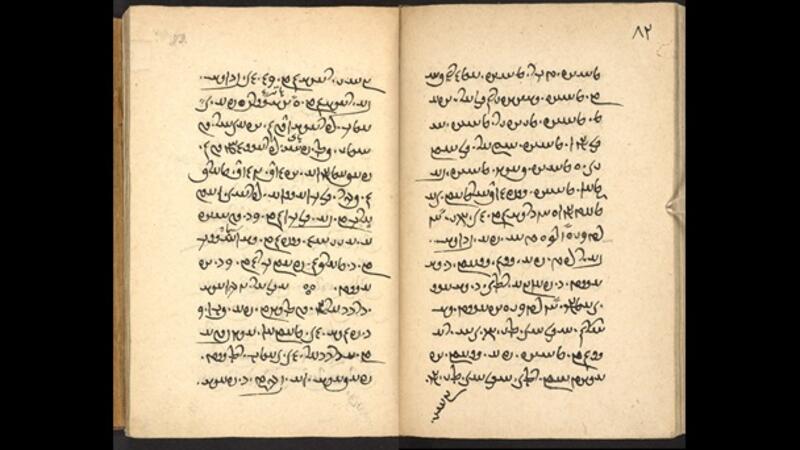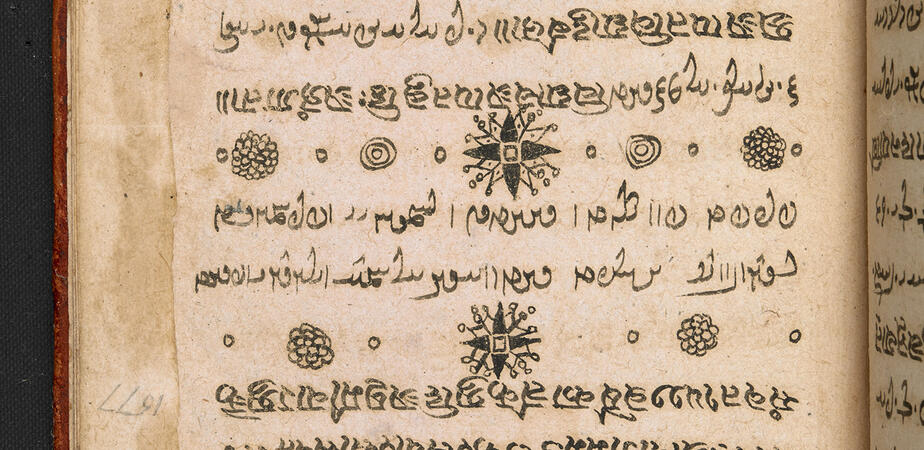This I ask Thee, tell me truly, Ahura. Who is by generation the Father of Right, at the first? Who determined the path of sun and stars? Who is it by whom the moon waxes and wanes again? This, O Mazda, and yet more, I am fain to know. This I ask Thee, tell me truly, Ahura. Who upholds the Earth beneath and the firmament from falling? Who the waters and the plants? Who yoked swiftness to winds and clouds? Who is, O Mazda, creator of Good Thought? This I ask Thee, tell me truly, Ahura. What artist made light and darkness? What artist made sleep and waking? Who made morning, noon, and night, that call the understanding man to his duty? — Gāthas, Yasna 44.3-5
Of what faith are the waters, Of what faith the trees, Of what faith the bounteous Mother Earth, Of what faith Ahura Mazda, Of what faith was Zarathushtra, Of that faith and of that Law as well, A Mazda-worshipper am I. — Yasna 12.7
I announce and carry out this Yasna [worship] for these places and these lands, and for these pastures, and these abodes with their springs of water and for the waters, land, and plants, and for this Earth and for yonder heaven, and for the Asha-sanctified wind, and for the stars, moon, and sun, and for the eternal stars, without beginning and self-disposing. And for all the Asha-sanctified creatures of Spenta Mainyu [the creative Spirit], male and female, the regulators of Asha. — Yasna 1.16
Seven great spiritual entities, the “Holy Immortals” or Amesha Spentas, manifest the divine attributes of Ahura Mazda: “Good Mind,” “Divine Law,” “Divine Kingdom,” “Holy Devotion,” “Perfection,” “Wholesomeness,” and “Immortality.” They also are the guardians of the seven aspects of material creation: sky, water, earth, plants, animals, humans, and fire. It is the task of humans to respect and care for the Seven Bounteous Creations and to work against evil forces which oppose right order, and in so doing to bring the world back to its original state of harmony. Thus Zoroastrianism requires humans to protect the environment; to avoid harm, pollution, and waste; and to restore what has been damaged. Whoever teaches care for all these seven creations does well and pleases the Bounteous Immortals; then his soul will never arrive at kinship with the Hostile Spirit. When he has cared for the creations, the care of these Bounteous Immortals is for him, and he must teach this to all humanity in the material world. — Shayasht ne Shayast 15:6
“For when he commits sin against water and vegetation,
even when it is committed against merely a single twig of it,
and he has not atoned for it when he departs from the world,
the spirits of all the plants in the world stand
up high in front of that man and do not let him go to heaven.”
- Zoroastrian Pahlavi Text

Header photo: The Mēnōy i khrad (‘The Spirit of Wisdom’), an example of a Zoroastrian Pahlavi text, probably composed during the 6th century CE; this manuscript was created in 1521 in Nausari, Gujarat

